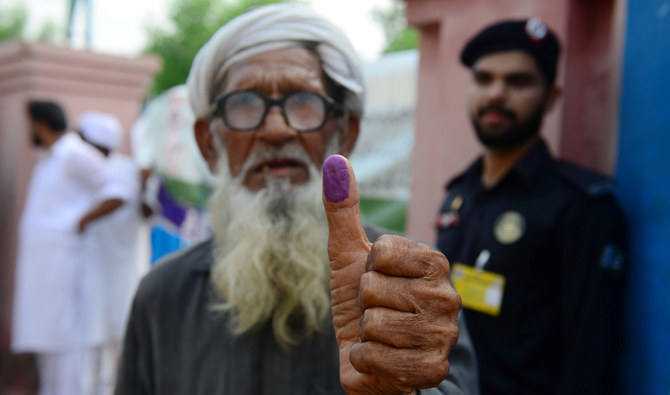ISLAMABAD: Pakistani Interior Minister Rana Sanaullah said on Tuesday general elections would not be held this year, as a new census approved by the government last week required fresh constituency boundaries to be drawn across the country, a process that could take months.
Prime Minister Shehbaz Sharif’s tenure expires on August 12, after which a caretaker government will take over with the constitutional mandate to organize general elections within a maximum of 90 days if the assembly is dissolved before the expiry of its term, and 60 days if it is dissolved when the term ends. Sharif has said he will dissolve the assembly on August 9 ahead of the expiry of its term, meaning general elections would be due by November.
However, last week Sharif’s government approved the results of a digital census carried out this year. The Election Commission of Pakistan is now bound under the constitution to draw new constituency boundaries as per the results of the new population count, a process that can take up to six months and would mean polling day is pushed back by months.
The ECP has already said it cannot hold general elections on the basis of the new population count within the stipulated three-month deadline if it has to conduct fresh delimitations of constituencies.
“The straight answer is no,” Sanaullah said in an interview with a local TV channel when asked if 2023 was the year in which general elections would be held in Pakistan.
“The constitution states that when the census is notified, then it is necessary to conduct delimitation of the constituencies,” Sanaullah said. “So, the caretaker setup will fulfill these legal requirements which takes around 120 days.”

Pakistan's Interior Minister Rana Sanaulah (left) addresses a media conference in Islamabad, Pakistan, on August 8, 2023. (PID/File)
Sanaullah said polls would be held as soon as the delimitation of the constituencies was complete. The new census shows the population has risen to 241.49 million.
With only a day left before August 9 when the government plans to dissolve its term, both the leader of the opposition and the prime minister have not yet finalized a name for the caretaker prime minister’s post. According to the constitution, a caretaker prime minister is appointed by the president in consultation with the PM and leader of the opposition in the outgoing National Assembly, the lower house of parliament.
Sanaullah said though many names for the post were being discussed by Pakistani media, a candidate had not yet been finalized.
“No name has been locked till now,” the minister said.
The opposition in Pakistan, particularly the party led by now jailed former premier Imran Khan, says the ruling coalition of Sharif is seeking to avoid facing an election as Khan’s popularity grows. The government denies it is dragging its feet.













